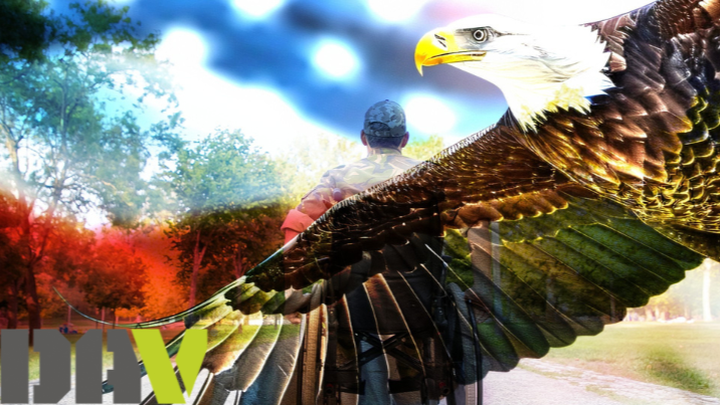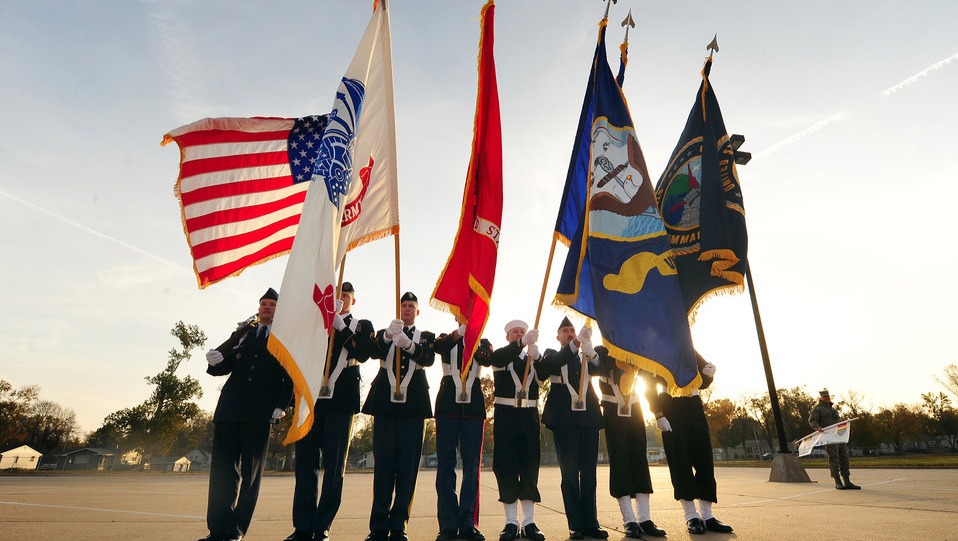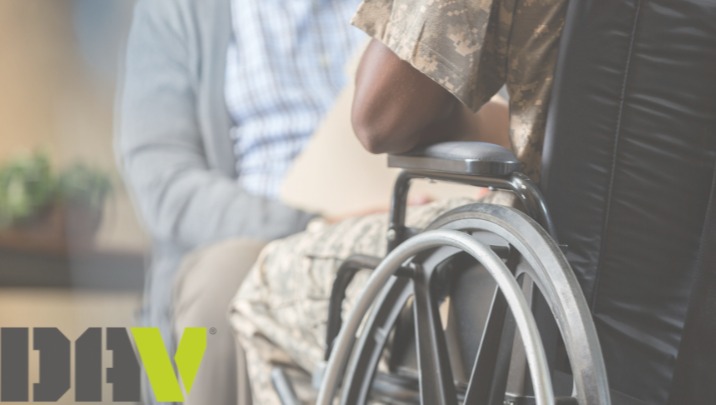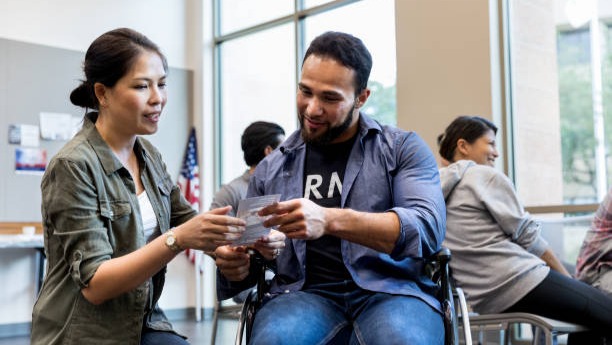
Help Supporting Eagles raise money for DAV
Tax deductible
“Freedom makes a huge requirement of every human being. With freedom comes responsibility.” Eleanor Roosevelt
Our Mission
Our team, the Supportive Eagles, is raising funds to support Disabled American Veterans, an organization dedicated to helping U.S. Veterans, our heroes who have sacrificed so much to protect our freedom. Supportive Eagles is a small group started by five undergrad students in the Pathways to Civic Engagement course at the University of North Texas. The team’s motto is “Restoring mind, body, & soul to make disabled veterans whole.” All of these Eagles have a personal connection to someone struggling with one or more disabilities. It was important for us to get behind a time-tested organization that is really helping to change lives for the better, and after careful review and consideration, we chose to support DAV.
Our intention is to summarize some of the challenges veterans face, different ways that DAV is working to make a difference, and to share some personal testimonies about how DAV has helped our loved ones. Many veterans face difficult challenges, including living with physical injuries, emotional trauma, homelessness, and an increased rate of suicide. By contributing, we can help them access critical resources like mental health support, physical therapy, and job training, to name a few.
We would greatly appreciate your support with a donation which goes directly to DAV to continue their outstanding service. Won’t you join us in honoring the service of our veterans, by giving back to those who’ve sacrificed so much for us?

About DAV
The Disabled American Veterans organization, founded in 1920, assists American Veterans with getting access to the benefits they’ve earned. DAV provides professional Benefits Advocates who make themselves accessible through every step of the benefits process, free of charge. Veterans can be sure that, no matter what stage of life or what disabilities they return home with, their DAV advocate will be there to help them access and receive the benefits they are entitled to- healthcare, disability, employment, education and financial, among others. A unique aspect of these advocates is that they are Veterans themselves, so they have intimate knowledge and experience with military service and the benefits process.
Navigating the claims process
Many veterans do not get the help they need because the VA system is so complex. “In 2023, 9 million were eligible for VA care, and only 6 million were using it” (Kerfoot 2024). Addressing these challenges requires both patience and transparency as this process can be overwhelming. Organizations such as DAV can aid veterans and their families in navigating the system. The DAV was able to help file over 209,000 claims, resulting in more than $28.4 billion of benefits being awarded to Veterans utilizing the DAV advocates (Disabled American Veterans 2024).

- Robert Wallace, a former U.S. Army soldier, experienced a life-changing injury when a fellow soldier assaulted him. The aftermath of this trauma left him with physical and emotional pain. He attempted to navigate the VA system but found it to be overwhelming. After years of struggling, Robert reached out to the Disabled American Veterans (DAV) for help and that's when things finally began to change. The agency helped Robert organize his documents and guided him through every step of the claim process. They provided him with support, and Robert could secure both disability benefits and receive proper medical care. Today, Robert is deeply grateful to DAV for their tireless efforts. Thanks to them, he can focus on his health and well-being. Priscilla A. Supporting Eagle
Life After Service: Risks & Challenges
Serving in the military may lead to physical and psychological issues, leaving nearly 5 million veterans with disability status linked to their service. Some complications may include PTSD, anxiety, and even depression. “In 2022, approximately 75.9% of U.S. veterans and active service respondents experienced PTSD, and 44% considered taking their own lives” (Veterans in the U.S., 2024). According the VA’s Office for Mental Health and Suicide Prevention in 2021, 6,392 Veterans lost their life to suicide, averaging out to 17.5 Veteran suicides per day. Unlike physical disabilities, many of these invisible disabilities do not show symptoms until years after service has ended, putting the Veterans at risk for job loss and homelessness as they enter into a crisis state. DAV offers support to Veterans in this stage by sharing literature about these issues, connecting Veterans to counseling services through the VA, Vet Centers and Military OneSource and offering rides to these appointments.
Homelessness among veterans continues to rise and transition into civilian life can be challenging. Several elements such as the shortage in mental health assistance, complexities of VA processing to receive benefits, substance misuse, and even legal issues can be difficult to work through. Although the Department of Veteran Affairs is working to provide permanent housing, it is still insufficient. “In 2023, 35,574 veterans were experiencing homelessness” (Pinkston 2024). In addition to offering assistance in receiving mental health services, DAV is helping to tackle the problem of homelessness with the Homeless Veterans Initiative, a program that promotes the development of supportive housing and provides the services necessary to assist homeless Veterans to become productive members of society.

Employment and Financial Challenges
In many ways, military service can help prepare people for life's many challenges; however, returning to civilian life isn’t always easy. This is especially true for combat veterans. This impacts not only the soldiers, but also their dependents. A 2024 Pew research survey revealed that 35% of veterans experienced difficulty paying their bills after leaving the military. Among those who have suffered from PTSD, the odds are even higher, with almost two-thirds saying that they had trouble paying their bills, and 42% having trouble getting proper medical care for themselves and their families (Schaeffer 2024).
Another program offered by the DAV to fight against veteran homelessness is their extensive employment program. The DAV offers a variety of career services, including job fairs, connecting Veterans with employers seeking Veteran employees and entrepreneurship counseling that is available to both the Veterans and their spouses.

- D. E. Williams, loved one of a Supporting Eagle, served the Army during the Korean War and at only nineteen years old, suffered a back injury that left him disabled for the rest of his life. In the early 90s, after decades of fighting through the confusing VA process and struggling to work a decade before retirement age, he reached out to DAV to see if they were able to help him. With the help of the DAV, he was able to get his disability percentage increased, allowing him to retire and live comfortably until his death in 1999. When he died, the DAV was contacted again and helped his widow navigate through the process of receiving death and burial benefits.
Join Our Fight
Please help the Supportive Eagles campaign by donating to fight against the many challenges our disabled veterans face during their transition back into civilian life. Your contributions will help provide necessary resources for programs that assist them in securing stable housing, employment, and mental health services. By joining the Supportive Eagles campaign, you will make a tangible difference in the lives of veterans and their loved ones, helping to create a community that honors our Veterans' sacrifices and promotes the healing of their minds, bodies and souls.
More information about Disabled American Veterans can be found here.
Find your local DAV office:
Join DAV:
References:
Challenges Veterans Face. (n.d.). DAV. https://www.dav.org/what-we-do/challenges-veterans-face/
Disabled American Veterans. (n.d.). DAV : Disabled American Veterans. DAV. https://www.dav.org/
Department of Veterans Affairs, Veterans Benefits Administration, Office of the Associate Deputy Under Secretary for Management, Office of Facilities, Access and Administration. (n.d.). VA.gov | Veterans Affairs. https://benefits.va.gov/benefits/
How We Help. (n.d.). DAV. https://www.dav.org/what-we-do/how-we-help/
Jack. (2024, July 1). Challenges of the military transition to civilian life. BestMind Behavioral Health. https://bestmindbh.com/blog/challenges-of-the-military-transition-to-civilian-life/
Kerfoot, J. (2024, April 28). Unseen battles: The harsh realities of veterans’ access to health care. STAT. https://www.statnews.com/2024/04/29/veterans-difficulties-accessing-health-care/
Our Impact. (n.d.). DAV. https://www.dav.org/what-we-do/our-impact/
Pinkston. (2024, July 22). The State of Veteran Homelessness [2024] - Mission Roll call. Mission Roll Call. https://missionrollcall.org/veteran-voices/articles/the-state-of-veteran-homelessness-2024/
Schaeffer, K. (2024b, April 14). Key findings about America’s military veterans. Pew Research Center. https://www.pewresearch.org/short-reads/2019/11/07/key-findings-about-americas-military-veterans/
VA Suicide Prevention Office of Mental Health and Suicide Prevention. (2023). 2023 National Veteran Suicide Prevention Annual Report. https://www.mentalhealth.va.gov/docs/data-sheets/2023/2023-National-Veteran-Suicide-Prevention-Annual-Report-FINAL-508.pdf
Veterans in the U.S. (2024, July 3). Statista. https://www.statista.com/topics/1279/veterans/#topicOverview
Organizer
BAAS 3000-700 Team 2
Organizer
Denton, TX
Disabled American Veterans Charitable Service Trust
Beneficiary